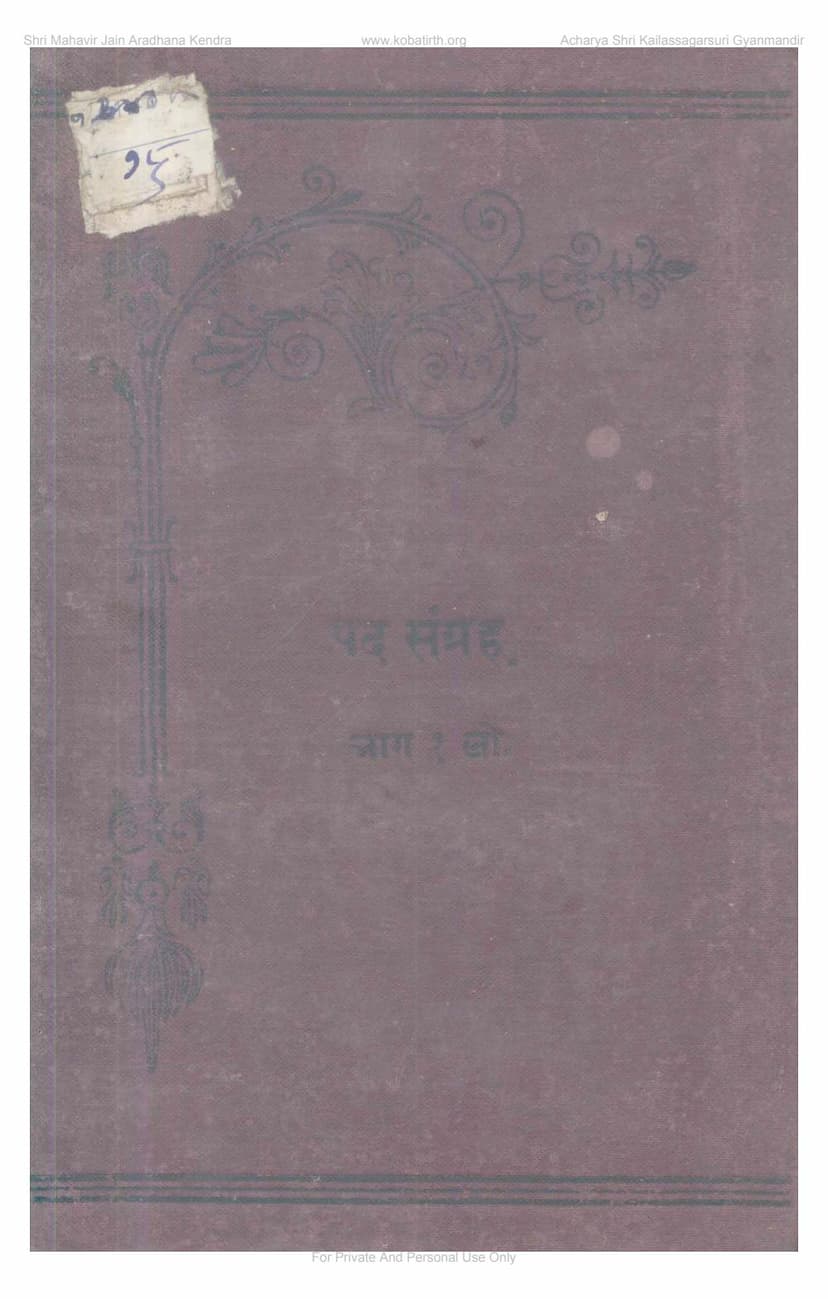Padsangraha Part 1
Added to library: September 2, 2025

Summary
The provided text is the "Pad Sangraha Part 1" (Collection of Verses Part 1) authored by Munishri Buddhisagar. Published by Seth Sukhlal Ujamshi and Shah Manilal Vamilal of Sanand, it was printed in Vikram Samvat 2434 (1964) and AD 1908. The catalog link points to the Jain Virtual Library.
The book is a collection of devotional and philosophical verses (pads) composed by Munishri Buddhisagar. The preface highlights the profound spiritual insights within these verses, which aim to awaken feelings of devotion and detachment in the readers. The verses are described as:
- Devotional and Reflective: They are said to inspire feelings similar to those evoked by the works of Anandghanji and Chidanandji.
- Dispassionate and Stirring: The verses dealing with detachment (vairagya) are imbued with a spirit that moves the hearts of readers, instilling peace and compassion.
- Vividly Descriptive: They paint realistic pictures of worldly events and experiences, drawing readers away from intense sensual pleasures towards a contemplation of renunciation.
- Soothing and Stabilizing: The verses have a profound effect on even disturbed minds, bringing about peace and tranquility.
- Instructive and Ethical: Many verses offer practical guidance for daily life, covering themes like the importance of good company, the fleeting nature of worldly pleasures, and the path to spiritual upliftment.
- Philosophical and Scriptural: Specific verses are noted for their deep exposition of Jain philosophy, including concepts like the multiple aspects of reality (syadvada) and the nature of the soul.
The preface emphasizes the value of these verses for both Jain and non-Jain readers, suggesting they serve as excellent study material for those interested in devotional and spiritual poetry. It praises Munishri Buddhisagar's contribution to Gujarati literature by enriching it with these profound compositions. The preface specifically mentions a ghazal with the line "We understand each other, we are of the same community," highlighting its message of compassion and high purpose.
The introduction also touches upon the human tendency to seek happiness in material possessions and worldly achievements, contrasting this with the true happiness found in spiritual detachment as described in ancient Jain scriptures. It critiques the concept of power that leads to harm, advocating for a path of self-reflection and spiritual contemplation. The verses are presented as a means to achieve this, encouraging the destruction of inner enemies like lust, anger, and greed, and fostering detachment and devotion.
The book is structured into various sections and includes numerous verses, each often accompanied by a rag (musical meter) indication. The content covers a wide range of themes:
- Stanzas (Stavans) in praise of Tirthankaras and deities: Including Keshariyaji, Shankheshwar Parshvanath, Vir Jinendra, Shanti Jinendra, Anandghanji's compositions, and others.
- Verses on spiritual knowledge (Bodhpattram): Discussing the nature of the soul, detachment, karma, and the path to liberation.
- Didactic verses: Offering advice on ethics, conduct, and spiritual practices.
- Verses on the importance of good company (Sadguru Sangat): Contrasting the influence of good and bad company.
- Verses on renunciation (Vairagya): Highlighting the impermanence of worldly life and the need for detachment.
- Verses on devotion (Bhakti): Expressing love and surrender to the divine.
- Verses on practical life: Including guidance for women, children, and disciples.
The work aims to provide spiritual nourishment and guidance, helping readers to understand the essence of Jain philosophy and to cultivate a life of devotion, detachment, and righteousness.